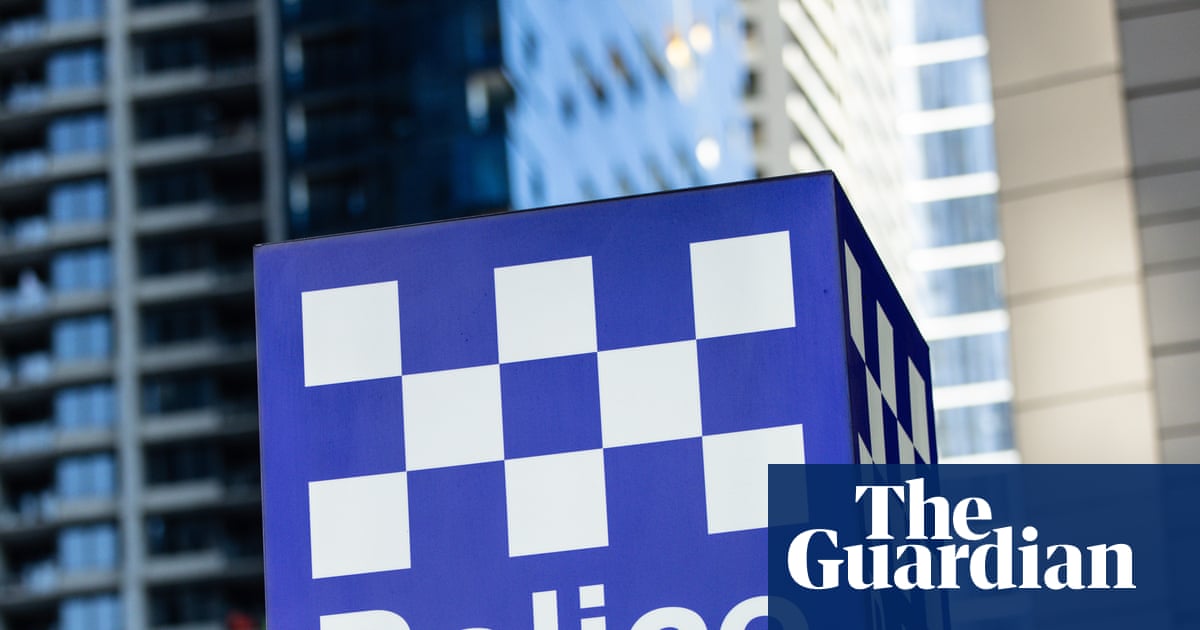In winter this year, a young Aboriginal man with a history of self-harm who had been remanded in custody in Melbourne was told he would be moving cells.
But he was not shifted across the corridor or to another building nearby: he was driven 300km to the police cells in Wodonga.
He had no connection to the city, in the state’s far north-east. He also had no shoes or socks. Neither his family nor his lawyer were told he would be moved across the state; his lawyer found out after calling the previous cells to be told he’d been moved.
The man was relocated as part of a process called “decanting”: the shuffling of people across prisons and police cells in Victoria as the state balances its tougher bail laws with a shortage of beds and corrections workers.
Victorian police have an agreement with Corrections Victoria that nobody will be housed for more than 14 days in police cells, as both authorities recognise these cells are not equipped to hold people longer than necessary.
The agreement is regularly breached. This means that people on remand – those who have either not been found guilty of any offence, or have not been sentenced – are typically housed in cells for 23 hours a day, with less access to healthcare, and less chance of being able to be visited or contacted by family and lawyers, than those in prisons.
In cases from the past six months uncovered by Guardian Australia, people have been moved from Melbourne to cells in Bendigo and Geelong.
People are even regularly completing entire prison sentences in police cells.
There are also unconfirmed reports of people being released from police custody in towns hundreds of kilometres from their homes, with no clear way for them to return.
Last month there were about 30 people in police cells who had been there for more than 14 days, according to evidence by senior officers to the inquest of Cody Dwyer, an Aboriginal man who died in custody in 2021.
The inquest had also heard police wanted to renegotiate the agreement with corrections from 14 to seven days, aware of the human rights implications of keeping people in inappropriate cells for longer than necessary.
But no agreement could be reached, as the state’s justice system sags under the weight of record demand for remand beds, while the newly appointed police commissioner, Mike Bush, also pushes for more police to return to the streets.
Sign up: AU Breaking News email
Geraldine Veneziano, Corrections Victoria’s acting general manager of the sentence management team, told the Dwyer inquest that the police cells were needed when prisons “bottleneck”.
The regularity with which this occurs meant little could be done to meet the police request of reducing the number of days people can spend in their cells.
Lawyers have taken to emailing Corrections Victoria, when they are concerned about their clients having been moved to police cells across the state or held longer than the 14-day agreement.
Corrections Victoria refers them to Victoria police, saying that if people are in their cells, they’re not corrections’ responsibility.
Sometimes, it will forward the email to Victoria police’s custody management division.
In the emails, seen by Guardian Australia, the opening of Western Plains prison is seen as a possible solution to the issue. The 1,200-bed prison opened on 26 June but there remains a shortage of staff across the corrections system.
after newsletter promotion
“If I talk about today’s custody landscape, we do have people that are in excess of 14 days in custody at a police detention facility,” Kline told the Dwyer inquest.
“There is a significant focus from Victoria police and corrections around those people who are on higher days and we try to avoid that as much as we can.
“There are circumstances where we may have to decant people from locations.”
The Dwyer inquest also heard that as of early October, about 20 people were completing prison sentences in police cells.
In a statement, a police spokesperson said the force could only transfer a certain number of people each day to corrections, based on their capacity.
“These numbers vary and Victoria police prioritises the transfer of individuals taking into account those who require medical support or other relevant circumstances including those from vulnerable community groups.
“Victoria police will continue to work with Corrections Victoria to ensure offenders are placed in appropriate detention facilities in a timely manner.
“Nobody is placed in a police cell until the relevant risks, management requirements and considerations for the individual have been assessed.”
A Department of Justice spokesperson tied the higher demand to beds to the bail reforms.
“Corrections Victoria is working closely with Victoria police to ensure that offenders are managed as quickly as possible,” they said.
In Australia, the crisis support service Lifeline is 13 11 14. In the UK and Ireland, Samaritans can be contacted on freephone 116 123, or email jo@samaritans.org or jo@samaritans.ie. In the US, you can call or text the 988 Suicide & Crisis Lifeline at 988 or chat at 988lifeline.org. Other international helplines can be found at befrienders.org
Disclaimer : This story is auto aggregated by a computer programme and has not been created or edited by DOWNTHENEWS. Publisher: theguardian.com










